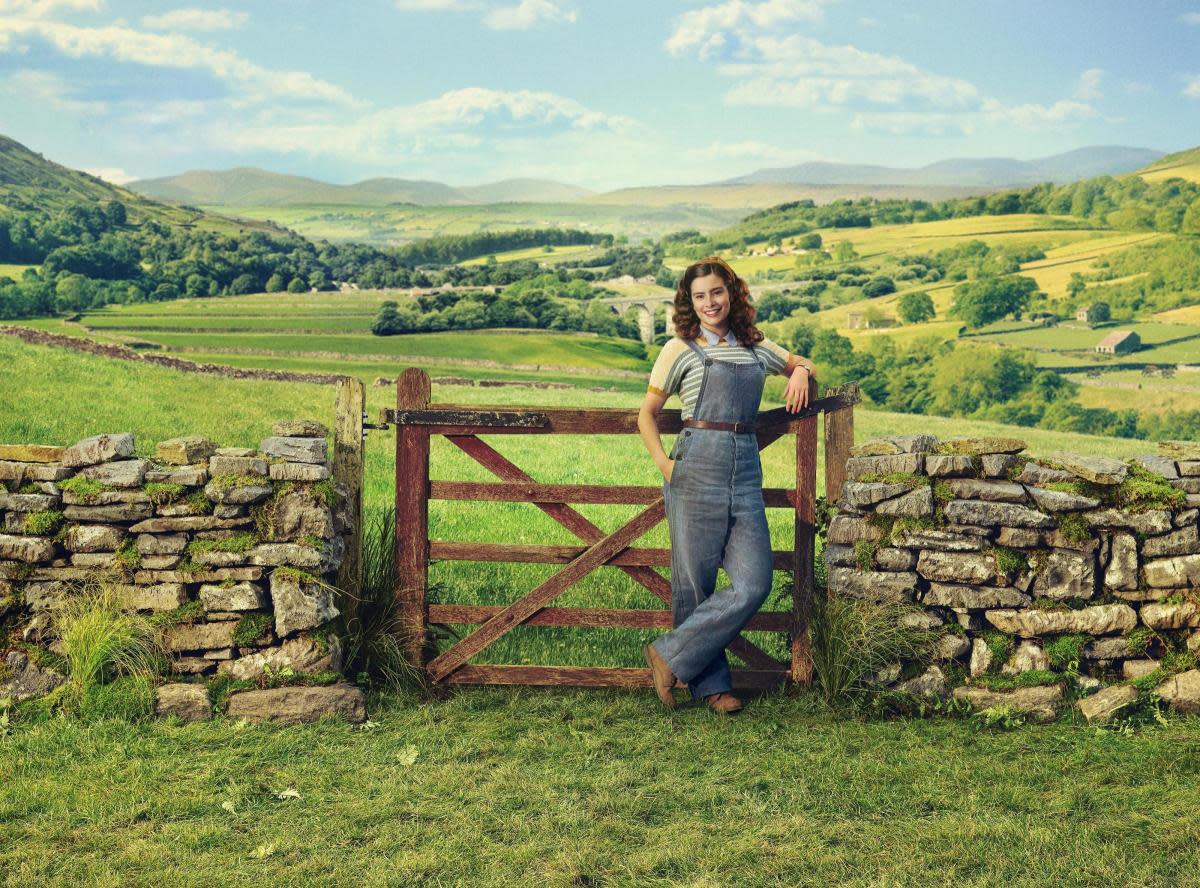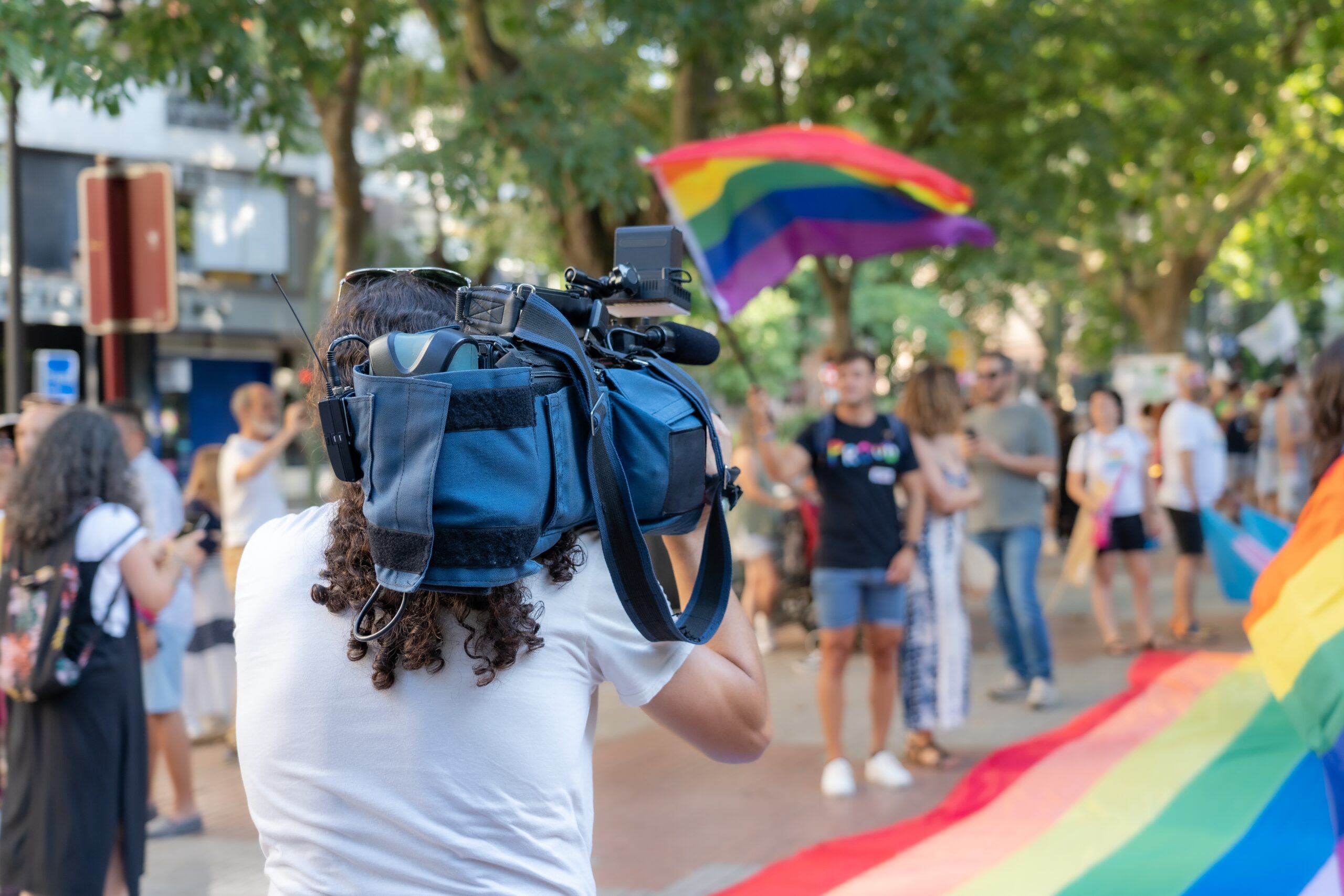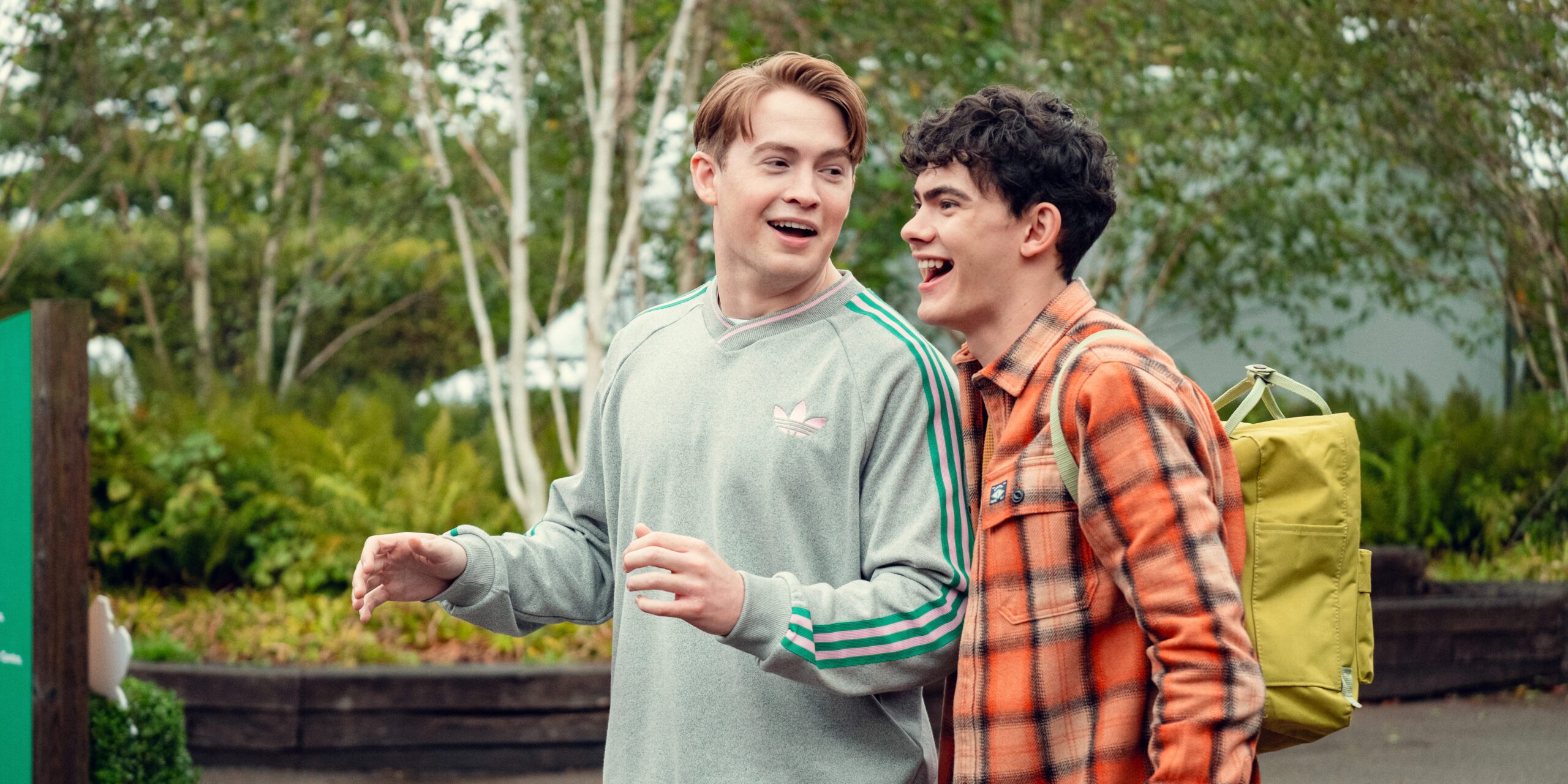By Samantha Rea
“I get so nervous. I’m still just as nervous now as I was years ago.” With an Academy Award under her belt and a back-catalogue of ultra-confident characters on her acting CV, it’s surprising to hear that Rachel Shenton still suffers from the same audition anxiety as everyone else.
“I do yoga and I’ve found that deep breathing is a good technique to calm myself down before I go in,” says Rachel, who credits the classical music of Ludovico Einaudi with getting her in the right mindset. “I focus on doing the best performance I can in that room – if that doesn’t lead to getting the job, at least I’m happy with what I’ve done. I also find it helpful to remember it’s normal to feel nervous. It means you care, and everybody else in there is probably just as nervous.”
Currently on our screens as Helen Alderson, in Channel 5’s remake of All Creatures Great and Small, Rachel is otherwise best known on TV for her roles as man-stealing glamour model Mitzeee Minniver in Hollyoaks, and savvy sales supremo Joanne Scott in the BBC comedy White Gold.
But that’s just on this side of the pond, as the Staffordshire born actress has also made a name for herself in the US, as Lily Summers in the series Switched at Birth. “I went to America on a ten-day holiday after I left Hollyoaks,” says Rachel, explaining, “I couldn’t get any work in the UK. Everybody I knew had gone to America and done pilot season, and it sounded terrifying, so I decided I’d just go on holiday and suss out what I thought of LA.”
While she was there, Rachel asked her agent to set up meetings for her. One of these was with the casting director for Switched at Birth, the first mainstream TV series to have multiple deaf and hard-of-hearing series regulars, with scenes shot entirely in sign language.
“I knew of the show because a few of my friends in the deaf community liked it,” says Rachel, whose meeting led to an audition. “Then I ended up doing another audition, and getting recalled – then I flew home because I didn’t hear anything!”
As it turned out, Rachel was flown back to meet the channel and spent two and a half years working on the show. “I think it’s one of those fluke things – maybe it was the stars aligning!” says Rachel, who’s happy to be back in the UK. “I love being in London – I love our theatre, I love our comedy. I had a great time in LA, but England’s home for me.”
A Spotlight member herself, Rachel always wanted to be an actress. “I honestly don’t remember ever wanting to do anything else,” she says. Despite this, Rachel never imagined she’d win an Oscar. “I grew up like most people thinking that was a mythical thing, floating about somewhere that you can’t quite get to, so it was definitely surreal!” says Rachel, who studied Performing Arts at Stoke on Trent College.
The Silent Child, which Rachel wrote, produced and starred in, won the Oscar for Best Short Film (Live Action) at the 90th Academy Awards. “I wrote the film because I was passionate about the subject. I’d been involved with the deaf community for many years, so it was a continuation of that. My dad lost his hearing when I was 12. That had a big effect on me because my dad was a superhero and this was the first time I saw him as human and vulnerable. That was the impetus for getting involved in the deaf community, and that’s why I wanted to write something around that.”
Shot in Staffordshire, with a production budget raised via Indiegogo, it was a case of “beg, steal and borrow” to get the film made. “Short films are notoriously a labour of love. They’re done on a shoestring, with limited resources, time and finance, so we had to be resourceful,” says Rachel, whose husband Chris Overton directed the film. “Our parents did the catering for us, so it really was a team effort!”
The Silent Child centres around Libby, a little girl who’s deaf and unable to communicate until she’s taught sign language by social worker Joanne. “Our lead actress was five years old, so that comes with its own challenges because there are licensing rules we have to adhere to,” says Rachel. “She’s not allowed to work over a certain amount of time per day, and that made the shoot a lot longer than we’d intended. Of course, time’s money when you’re making a short!”
Libby is played by first-time actress Maisie Sly, who’s deaf in real life. An interpreter was on set, and Maisie’s parents were there most of the time. “There were also crew members who were deaf, so we made sure Maisie felt comfortable and at home,” says Rachel. Fluent in sign language herself, Rachel found other methods of communication were more popular with Maisie: “There’s a universal language of kindness – she responds very well to Jelly Babies and Fruit Pastilles!”
It was only after making The Silent Child that meetings with distribution companies were set up. “We made the film without any plans for what to do with it next,” says Rachel. “I know it’s possible to get distribution in place before you shoot, but we didn’t do it that way round just because we didn’t know what we didn’t know! So we had meetings afterwards when the film was already the final film. That had its advantages because we got to tell it the way we wanted to, without any extra opinions popping up!”
Promoting the film was similarly off the cuff. “It sounds so naïve, but we didn’t have a strategy or marketing plan – none of us had any experience in it! Fortunately, our lead actor was a superstar and we’d shot lots of BTS [behind the scenes] footage as we went along, so we were able to pepper that through as the journey went on,” says Rachel, who credits Maisie with catching the media’s attention: “She’s five years old, cute as a button and communicated through sign language – she captured the nation!”
It was winning the Rhode Island International Film Festival [RIIF] that made The Silent Child eligible for the Oscars. However, Rachel never imagined getting that far. “They told us over 4,000 films were submitted – and they selected 200. So if you’re getting into these film festivals, you’re doing so well.”
RIIF was one of “a lot” of film festivals that The Silent Child was submitted to. “Our rejection list was huge. It’s really normal to not get into a film festival. So it wasn’t like, “oh we just picked Rhode Island,” it was like: “Wow! We got accepted into a qualifying film festival!” That felt like a win to us. We were so pleased to even get screened there, and that people would see the film. Winning didn’t seem like an option – we didn’t even consider it.”
Entry fees were raised via crowdfunding and supporters who were behind the subject of the film. “We’d get a little bit of money and then we’d go down the list, going, “right, we can afford to submit to that one and that one!” It was quite hand to mouth,” says Rachel, who used a website called FilmFreeway.
“It’s like the Yellow Pages of the film festival world, and we submitted to what looked like the best film festivals based on reviews and reputation, and the ones that are BAFTA and Oscar-qualifying. We were like, ‘right, they must be held in high regard if they’ve been credited by BAFTA and Oscar!’” says Rachel. “We learnt later on that people have a whole festival strategy, and again, we just didn’t know this. It was a big learning experience.”
It was also hugely rewarding. “I’m proud that we managed to put the subject on arguably one of the biggest stages in the world, and started what felt like a national dialogue,” says Rachel, who accepted the Oscar using sign language. “Maisie gave a voice, through her character, to other deaf children around the world – she’s an absolute trailblazer. She’s at the Venice Film Festival at the moment with her next movie and I’m very proud of that.”
For Rachel, writing expanded her horizons. “Only a tiny portion of actors manage to constantly work and get really exciting roles. For most actors I know – and I put myself in this category – you take the roles that come along, and you try to carve out the best career you can. I wasn’t in a position to be choosey before, and I don’t know if I am now, but writing your own material is really freeing – you give yourself a role you can play, and feel like you can do.”
It was clear to Rachel as she was writing The Silent Child that she wanted to play the role of the social worker. “You write with yourself in mind, thinking about the things you want to say, and how you want to say them. It’s great as a performer to give yourself that opportunity. We’re lucky with the age we live in now, in that we have social media, YouTube, all those outlets to put your content out there, so you don’t have to wait for permission.”
Rachel’s acting career hasn’t been all LA, Oscars and hit TV series. “I’ve done three waitressing jobs at one time while I’ve been trying to get work, so I understand feeling despondent – I don’t believe any actor who says they’ve never felt like that,” says Rachel. “When you’re out of work and you read about someone that’s working, it always feels like, “oh it’s OK for that person!” But the thing that does give you more freedom, and more creative license, is creating content yourself. I had a wonderful experience creating for myself, and it’s certainly something I’ll continue to do.”
Samantha Rea is a freelance journalist. Prior to COVID, her celebrity interviews involved Champagne and stallions. However, she now operates from a home ‘office’ reminiscent of Andi Peters’ Broom Cupboard. Refusing requests for Zoom, Samantha insists on telephone interviews (audio only) so no one can see the random assortment of toothpaste stained items she’s cobbled together that day.
Main Image features Rachel Shenton as Helen Alderson in Channel 5’s All Creatures Great and Small. Credit: PA Photo/Channel 5/Playground Television (UK) Ltd
Published on 17 September 2020.




















